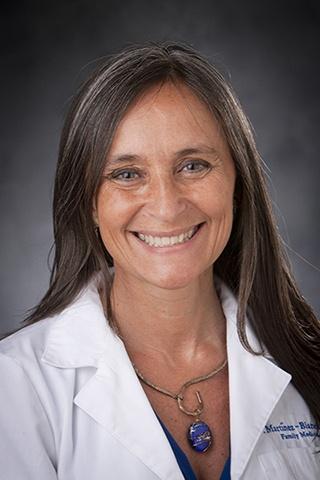It was that time of the year. Match Day was approaching, and some nights I would lie awake, wondering who our new interns would be.
I would think of the outstanding young men and women we interviewed this recruiting season for the Duke Family Medicine Residency Program; the amazing conversations that often felt rushed in a 30-minute interview, feeling that I had just met a peer, a soulmate, a passionate advocate, someone with an extremely intelligent mind.
I would think of the wealth of information they shared, their willingness and passion. And what steps they had taken in their lives to be sitting in front me, a program director in a family medicine residency program in an academic medical center.
Duke Family Medicine started reviewing applications in September; 583 applications were received and 86 medical students were invited to interview.
I am thankful to all who participated in this process which was transparent, smooth and guided by a spirit of trust and inclusion, and that showed the commitment everyone in our residency program has for making this a special place to train, work, educate and “live” every day.
Every person in our residency program — faculty, staff and residents — helped to review the applications, interview, host dinners, give tours and share time with the 57 applicants who made their way to Durham. And we are lucky to have matched five of those applicants — Brian Blank, Sam Fam, Jonathan Hedrick, Jonathan Jimenez, and Everlyn Perez.
As we interviewed the prospective family medicine residents, I often listened in awe, wondering how they had lived such amazingly rich lives before “hitting” thirty. The varied experiences included Teach for America, AmeriCorps, work and study in global sites (Uganda, Peru, Costa Rica, Honduras, France, and Haiti), advocacy in Washington, disaster relief, work at the White House, research in community engagement, work with vulnerable communities, founder of a non-profit organization, careers in journalism and writing, traveling the world, and the list goes on.
The applicants had it all. They were FMIG leaders, Primary Care Progress chapter founders and media directors, Albert Schweitzer fellows, Pisacano Leadership scholars, NCAFP scholars, leaders of American Academy of Family Physicians, American Medical Association, American Osteopathic Association, American Medical Student Association, Student National Medical Association, and Latino Medical Student Association. Members of Alpha Omega Alpha, Sigma Sigma Phi, and Gold Humanism Honor Society and Community Service award recipients.
Some were interested in global and migrant health, others in developing family medicine abroad. Many wanted to continue their involvement in health care policy, and learn innovative ways to provide health care and universal access. As patient advocates, all were men and women whose eyes lit up at the mentioning of decreasing health care disparities, and becoming excellent clinicians eager to help their patients in all the aspects of family medicine.
As I interviewed them, I thought of how privileged I am to be surrounded by incredible resources and amazing faculty at a university eager to tap these young physicians’ minds in concentrations in health policy, leadership, teaching, quality and safety. I’m also grateful that our own department — Duke Community and Family Medicine — is involved nationally in building connections between primary care and public health.
We interviewed applicants from 8:30 a.m. to noon every day; five interviewers with a different set of questions. We learned that the applicants wanted to train in a program that would foster curiosity, innovation and their personal investment in redesign.
They were looking at person-centered approaches that foster a more humane and holistic approach to health care. They wanted the opportunity to continue to grow as leaders longitudinally planning their elective time to maximize their growth and the results of their investment toward a more just society.
We ended the day with a 50-minute population health workshop, my way to see them at play with possible future colleagues and also spread our interest in improving population health as a core value of the specialty of family medicine.
Five outstanding young physicians will join us this July, and we will then again ask those questions, now with more time to really plan, building together with our team the next three years of training. We are privileged to have access to such bright individuals, and to be able to impact their lives and those of the communities they will serve.
Viviana Martinez-Bianchi is program director of the Duke Family Medicine Residency Program. Email viviana.martinezbianchi@dm.duke.edu with questions.
Editor’s note: A member of the Duke Family Medicine Residency Program leadership team guest blogs the fourth Friday of every month.
